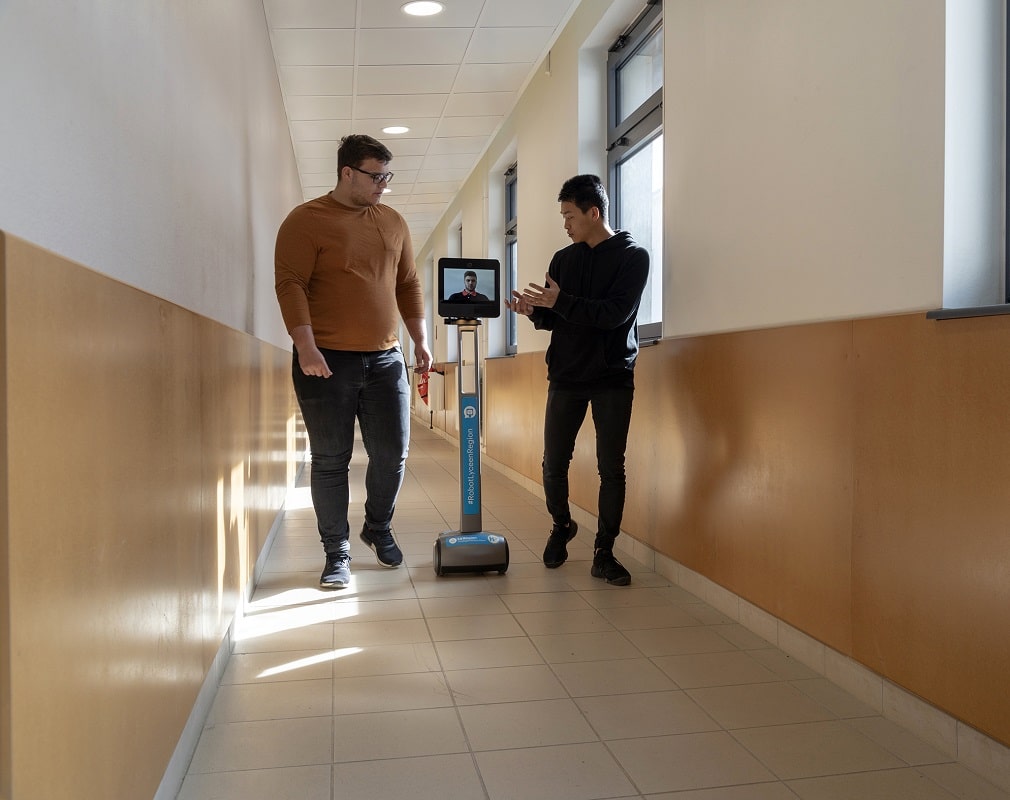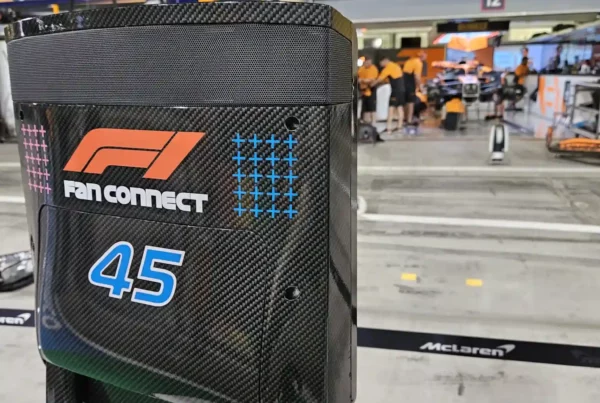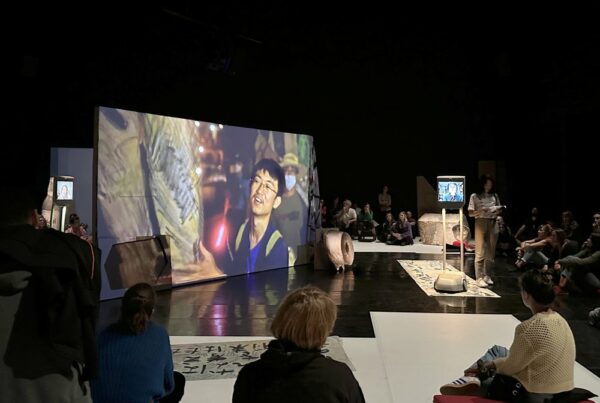Committed to inclusive schools for several years, Awabot supports the UNESCO Chair “Disability, Education and Digital”, inaugurated in October 2022 at the Institut national supérieur de formation et de recherche pour l’éducation des jeunes handicapés et les enseignements adaptés (INSHEA). Interview with its director, Isabelle Queval, university professor and head of the Research Group on Disability, Accessibility, Educational and School Practices (Grhapes) at INSHEA, and also a philosopher.
A research program for a more inclusive school and society
Every year, thousands of people are prevented from attending class or training for health reasons (disability, illness, etc.). For these learners with special needs, digital technology is a real opportunity. It promotes academic, social and professional inclusion through innovative technological solutions, such as the Beam® telepresence robots deployed as part of the TED-i program by the Ministries of Education and Youth, and Higher Education and Research.
Pioneer and leader in mobile telepresence, Awabot deploys Beam® robots, produced in France, throughout the world.
Whether for professional use or to promote the inclusion of disabled people, our experts will support you in all your projects.
Let’s talk now !

Just inaugurated, the UNESCO Chair, which is intended to become a national and international scientific reference center, aims to “support companies, citizens and public authorities in their reflections on the use of inclusive tools, and to contribute to the implementation of these tools, particularly for people with disabilities, which will ultimately benefit society as a whole.”
“Disability, Education and Digital” Chair: bringing together and federating research
In 2019, Isabelle Queval, then a professor at INSHEA, was entrusted with the direction of the GRHAPES laboratory. A year earlier, she already had the idea of a chair project to give impetus and visibility to INSHEA, an institute recognized for its expertise in disability and special educational needs. Isabelle Queval: “The chair project started small, initially based on INSHEA’s own strengths. As research chairs are mainly based on private or institutional sponsorship, a canvassing phase was then launched. We then decided to apply for the UNESCO label, in order to give the chair a wider influence. The application was submitted in April 2020, but the pandemic arrived and delayed obtaining the label.”
The UNESCO Chair “Disability, Education and Digital” aims to “produce, develop and evaluate innovative resources promoting the goal of a more inclusive education and society in line with government guidelines.”
I.Q: “In most universities today, researchers are interested in and work on disability, but it is very difficult to bring them together in the same projects and bodies. The impetus given by the chair aims to bring together and federate people who are working all over France and the world on these themes.“
An international influence thanks to the UNESCO label
I.Q: “Despite the context, in 2021, we organized a hackathon – an innovation competition where participants come together to generate ideas and design solutions over a very short period of time – on digitally facilitated inclusive education, followed by the Chair Days in October 2021. These days were held just before the Chair was awarded the UNESCO (United Nations Educational, Scientific and Cultural Organization) Chair label the following month: a contract valid for a minimum of 4 years was signed with this international institution, providing for an evaluation of our work every two years.
The UNESCO label favors the international influence of the “Disability, Education and Digital” Chair: it is the only French Chair on this theme, knowing that there are sixty UNESCO Chairs in France and eight hundred in the world. All chairs combined, this research chair is also the only one that combines these three themes.“
“Disability, Education and Digital” Chair: what objectives?
The objectives of the “Disability, Education and Digital” Chair are threefold:
- To create an international reference center for research, development and evaluation of digital tools related to the educational, social and professional integration of people in vulnerable situations;
- To make efficient the notions of inclusive school and society;
- To think and evaluate in the field the effects and long-term impacts of the digital transition on the uses and on the personal identity constructions (well-being, life satisfaction, etc.) in the face of vulnerabilities.
Disability and Digital: promoting the acculturation of education professionals
I.Q : “There are a lot of technologies, a lot of start-ups that are created around the themes of inclusion and education. But in the end, there is very little analysis of the uses or research on these productions.
The INSHEA has the Observatory of Adapted Digital Resources (ORNA), whose mission is to identify, analyze and evaluate digital resources that can be used by teachers faced with the education of students with disabilities, in conjunction with the Ministry of Education and Research. This observatory receives a plethora of proposals for innovative tools and devices to be assessed. Unfortunately, this work is lacking. It is therefore not easy to know how to direct digital uses to improve the well-being and learning of people with special educational needs.
Digital technology is full of solutions for school inclusion, but there are also counter-uses: it is the job of the HEN Chair to explore the uses, to make a critical analysis and to evaluate the devices in order to develop them, or not.
Each year, the INSHEA welcomes three to four thousand trainees who are teachers, specialized educators, directors of institutions, or who work in the medical-social field. These are people who work in the field. Our long-term project is to integrate into their training the experimentation of tools but also the fact that they can use them or bring a critical view. There is a real acculturation to accompany.“
Disability: technology to the rescue of the body
Isabelle Queval is also the author of several philosophical essays on the notion of the body, which she has studied extensively as a former top athlete. A human body that some digital solutions can compensate, or even increase, in case of disability or illness.
“The notion of the body has multiple entry points in the registers of disability and technology. Digital technology is an opportunity in many ways for learners with special needs: in particular, it modifies representations of the body. This is the principle of the avatar, materialized for example by virtual reality headsets or even telepresence robots, which bring comfort to people with special needs.”
Would you too like to support the UNESCO Chair “Disability, Education and Digital” and join the governance committee as a patron? Find out more.




